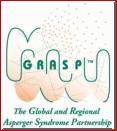Emancipatory Constructionism
The explicit objective of the transdisciplinary new critical theory used by The Institute for Emancipatory Constructionism™, designated as Emancipatory Constructionism™, is emancipatory structurization. In present usage, a structurization may be regarded as any social structure (set of rules), group, or culture. Expressly, social constructions, whether emancipatory or dominative, are the naming, classifying, or categorizing of tropes (the attributes of individual actors) into structurizations. Whereas social constructions are the generative processes, structurizations are their byproducts. The Institute for Emancipatory Constructionism advocates a radical inclusion – defined as the incorporation of individuals who are frequently “othered” (marginalized or excluded).
Furthermore, Emancipatory Constructionism, which begins with an examination of the conditions of domination, is intentionally value laden, not value free. Its methodology is a conscious engagement in praxis, a public sociology perhaps, in transforming dominative structurizations into emancipatory ones. Although, situationally, dominative structurizations may be accepted, with or without utility, from oppressors, through concerted action, as a radical praxis (emancipatory action) and a critical pedagogy (emancipatory education), they can, at times, be deconstructed (that is to say, denamed), revealing their dialectical contradictions, and reconstructed (renamed) into emancipatory structurizations.
This neo-Marxian paradigm draws from three nominalist-cum-particularist rubrics. First, out of medieval nominalism comes a discourse on universals as names. Second, Marxian with Lockean, trope, and other modern nominalisms are employed. Finally, social constructionism with cultural sociology, postmodernism, poststructuralism, critical pragmatism, and other postisms are utilized to express an incredulity toward, and to oppose the dominations of, essentialisms, foundationalisms, and metanarratives.
































Trackbacks